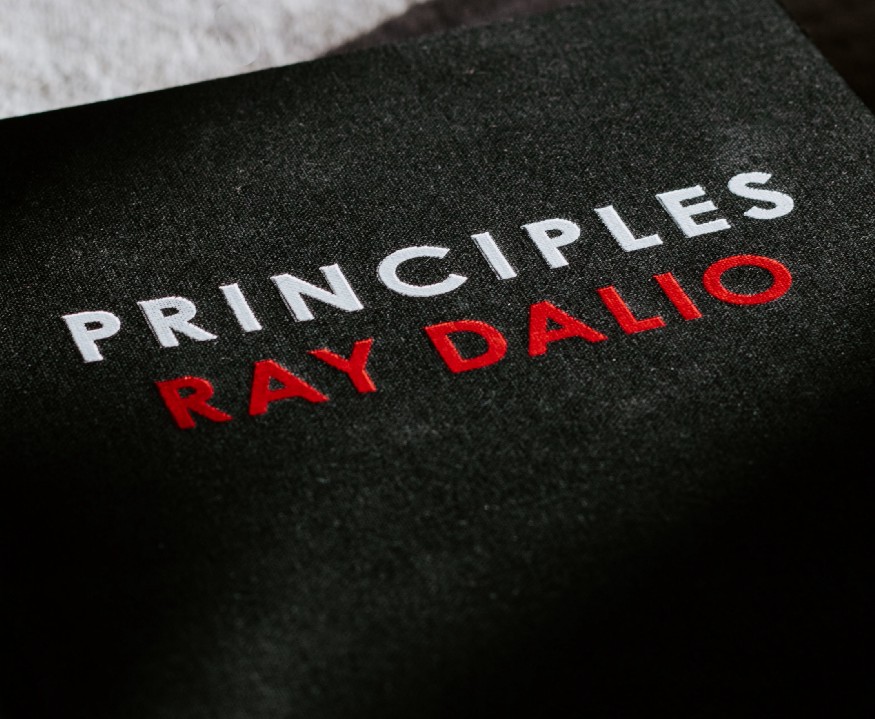Ray Dalio spent 40 years of his life building Bridgewater Associates from his dorm room into a huge success managing over $100 billion. Then he wrote a book cataloguing all the lessons he learned from his mistakes along the way: Principles: Life & Work.

“Ray Dalio has provided me with invaluable guidance and insights that are now available to you in Principles.” — Bill Gates
These are his 9 most important rules:
Be a hyperrealist I have become so much of a hyperrealist that I’ve learned to appreciate the beauty of all realities, even harsh ones, and have come to despise impractical idealism.
People who achieve great things aren’t idle dreamers, but rather they are totally grounded in reality.
Being a hyperrealist means understanding, accepting and working with reality.
Are you bad with details? Forgetful? Can’t get hired because of your bad CV? Embrace reality and deal with it. Having a clear understanding of reality, e.g. knowing your CV is bad, is the necessary first step to progress.
Own your outcomes So don’t worry about whether you like your situation or not. Life doesn’t give a damn about what you like. It’s up to you to connect what you want with what you need to do to get it and then find the courage to carry it through.
If you focus on making good decisions instead of complaining about things being outside your control you can have a terrific life.
Be radically open-minded and radically transparent Being radically open-minded means pro-actively asking people why what you are doing may be silly.
Radical transparency means putting yourself out there and showing people what you are doing so that they can hold you accountable.
This exposes you to criticism, which it’s natural to fear, but
if you don’t put yourself out there with your radical transparency, you won’t learn.
An accurate understanding of reality is the essential foundation of any good outcome Most people fight seeing what’s true when it’s not what they want it to be. That’s bad, because it is more important to understand and deal with the bad stuff since the good stuff will take care of itself.
If you don’t understand the things that get in the way of your success how can you effectively deal with them?
Understand them, ask people why you are failing, assume that in many (or most) ways you are incompetent.
Identifying problems is not the same thing as surrendering to them, but rather the first step in eradicating them.
Evolving is life’s greatest accomplishment and its greatest reward Once we get the things we are striving for, we rarely ever remain satisfied with them. The things are just the bait.
Chasing after them forces us to evolve, and it is the evolution and not the rewards themselves that matter to us and to those around us.
So it’s important to keep in mind, as we work towards a career goal for example, that the real objective is to grow and learn, i.e. to evolve.
This should inform our process: if something went badly, dwell on it to understand why so you learn to never repeat this mistake.
If you’re hesitating between a difficult option and an easier one, the difficult one will be more rewarding.
Understand nature’s practical lessons According to Ray Dalio nature’s key practical lessons are:
Reality is optimising for the whole — not for you: this means that if you optimise for the whole, you will be rewarded by reality. This is why startups obsess over solving users’ problems. Maximise your evolution: in nature the systems that do best are those that evolve the fastest. This means you should strive to adapt rapidly through trial and error. Pain + Reflection = Progress If you want to achieve big things, it’s going to be painful.
The trick is to go towards the pain rather than avoid it.
Not sure if you should take the comfortable route or the hard one? Go to the pain. Not sure if you can handle new responsibilities? Go to the pain.
You will fail, but if you reflect on those failures you can grow and progress.
If you don’t let up on yourself and instead become comfortable always operating with some level of pain, you will evolve at a faster pace. That’s just the way it is.
Weigh second and third order consequences Often times the first order consequences of things have the opposite desirability to the second and third order.
The first order consequence of exercising is time spent and pain, the second order is a healthier life and better appearance.
Quite often the first-order consequences are the temptations that cost us what we really want
If you don’t focus on second and third order consequences you will keep getting distracted by things that won’t matter, you’ll be driven away from the path towards what you really want.
Look at the machine from a higher level The ability to rise above your circumstances and look down on them objectively will give allow you to study and influence the cause effect relationships at play in your life and use them to get the outcomes you want.
By continuously comparing goals to outcomes you can determine how to modify your “machine”, i.e. the way you operate to get to your goals, to get better results.
The biggest mistake most people make is to not see themselves and others objectively, which leads them to bump into their own and others’ weaknesses again and again.
To avoid this mistake you need to rely on the input of others who will see you more objectively.
In summary: Evolve quickly or you will fail. The best way to evolve is by proactively exposing yourself to criticism. If you go towards the pain and reflect on it, you will grow and succeed.